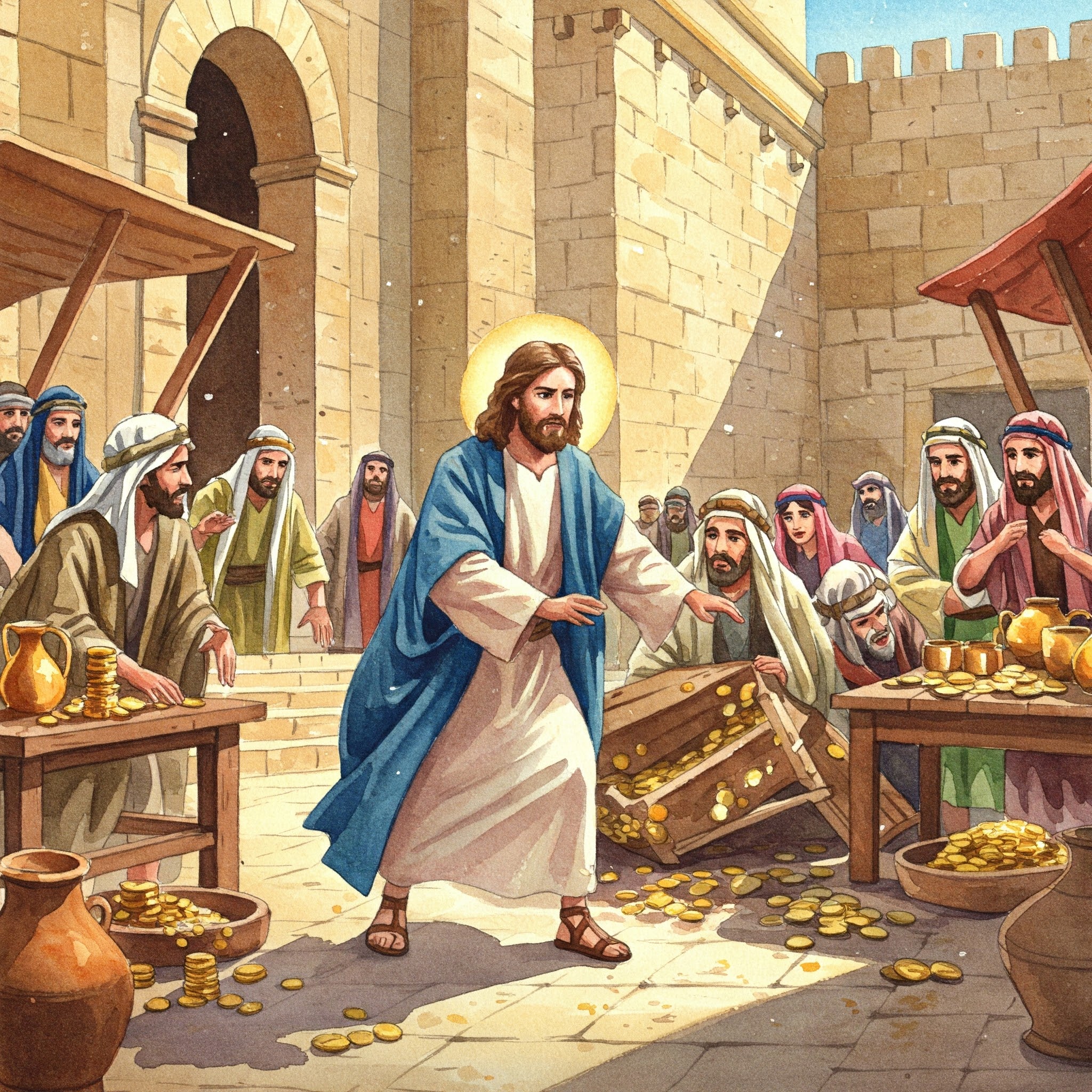8th February, 2026
A Fountain Publication

The Lodestar
Online Magazine for the Thinking Christian

Faith
Holy Monday: When Worship Was Defended
Holy Monday marks Jesus’ cleansing of the temple—a bold act confronting corruption in worship. This prophetic moment calls believers to examine the integrity of faith, challenging systems that prioritise profit over prayer.
By Thangchinllian Guite on 14th April, 2025
Holy Monday follows Palm Sunday in the Christian calendar, marking a key moment in Jesus’ final week. According to the Gospel accounts, he entered the temple in Jerusalem on this day and overturned the tables of money changers and traders (Matthew 21:12—13; Mark 11:15–17; Luke 19:45–46). While often interpreted as a moral outrage against commercial exploitation, cleansing the temple carries more profound theological significance—touching upon the nature of worship, institutional corruption, and prophetic judgment.
Challenge to Religious Authority
Jesus’ action directly confronted the religious leadership, which had allowed or profited from a marketplace culture in a sacred space. The outer courts of the temple, originally designated as the Court of the Gentiles, had become overrun with economic activity. Foreign pilgrims were expected to exchange currency and purchase animals for sacrifice, often at inflated prices. By overturning tables and driving out the sellers, Jesus exposed a system prioritising profit over piety. This was not merely a spontaneous outburst but a prophetic gesture echoing Old Testament critiques of exploitative worship (Jeremiah 7:11). The religious leaders perceived it as a threat to their authority and control, thus intensifying their opposition to Jesus (Mark 11:18).
Symbol of Judgement and Reform
The temple, central to Jewish identity and worship, was intended as a house of prayer for all nations (Isaiah 56:7). Its misuse turned it into a den of robbers, a phrase Jesus quoted to express divine displeasure (Matthew 21:13). His act of cleansing was symbolic of impending judgement—not just of the temple system but of a nation that had lost sight of its covenantal mission. Within forty years, the temple would be destroyed by the Romans in AD 70, an event many Christians interpret as a fulfilment of Jesus’ warning (Matthew 24:2). The cleansing thus served as both a critique and a foreshadowing of institutional collapse, urging reform towards justice and inclusivity in worship.
Call to Authentic Worship
At its core, Holy Monday challenges the believer and the Church to evaluate the integrity of worship practices. The commercialisation of faith is not limited to ancient times; modern parallels abound in religious merchandising, prosperity teachings, and the prioritisation of financial growth over spiritual depth. The temple cleansing reminds us that sacred spaces must reflect holy purposes. Worship devoid of justice, humility, and sincerity becomes a hollow ritual. As Jesus acted to restore sanctity in the temple, believers are called to examine personal and communal faith expressions.
Are they marked by holiness or by compromise?
Holy Monday is a historical recollection and a continuing call to accountability. It invites reflection on how religious, social, or political systems may distort sacred intent. By cleansing the temple, Jesus reasserted the primacy of pure worship and communal righteousness. That message still echoes today.
(With a lifelong passion for writing, Thangchinlian Guite finds joy in weaving his imagination into words on paper.)
Share this Article
Advertisements
Explore More on The Lodestar

How Our Hearts Influence Perception and Relationships
When peace rules your heart, even challenges feel manageable, and you see beauty in every moment. Choose calmness, patience, and kindness daily, and watch your relationships and life flourish with...

Why Pain is not Wasted: How Suffering Builds Character and Strengthens Faith
Pain is God’s refining fire. Like Joseph, suffering builds character, empathy and testimony that strengthens others. Discover how trials turn into purpose and growth of faith.
Subscribe to our free weekly digest.
Join hundreds of others who have subscribed to our free weekly digest for inspiring news, faith, community, family, opinion, and culture content. Stay connected and nurture your spiritual growth with thought-provoking articles delivered straight to your inbox.
Join our growing community of readers today.

